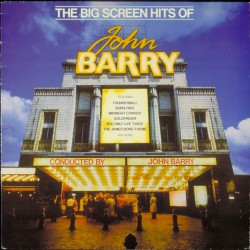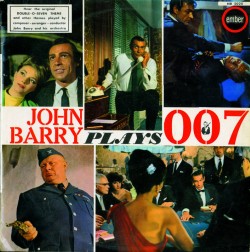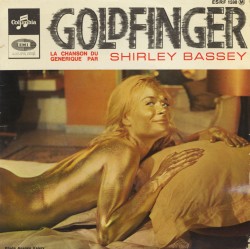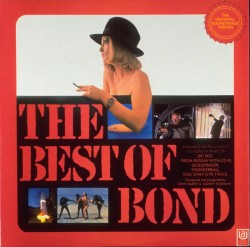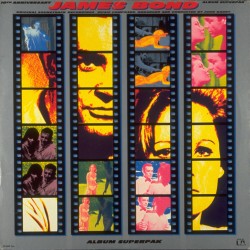The Lion in Winter is a highly literate, intelligent movie set in France in 1138: starring Peter O'Toole and Katherine Hepburn, it tells the story of how Eleanor, wife of King Henry II, seeks revenge on her husband as he releases her temporarily from prison in order to name his heir to the throne from his three sons; meanwhile, they are busy plotting against each other. John Barry was already well-known by the time, having scored many Bond movies and Born Free, but must still have seemed like a strange choice to score the movie: a highly classical and refined score was required for the movie, something Barry hadn't really written up to that point. He blew away any misconceptions with his brilliant work on the movie, and deservedly won an Oscar for his troubles.
The score features by far Barry's most extensive use of choral music set to lyrics: the opening choral theme is his most portentous, and the choral writing of other cues such as "Allons Gai Gai Gai", "Eya, eya, nova gaudia" and "Media vita in morte sumus" features much variety but a consistent beauty and relevant dramatic thrust. While not up front, the chorus is still usually heard behind the orchestra, and the dramatic piece "To Rome" is nothing short of stunning, becoming one of the most influential pieces Barry has written (though it is rarely acknowledged as such). In my opinion "We're All Jungle Creatures", the finale, is the ultimate piece of Barry film music, beyond comparison with anything else he has written: he wraps up the score with one last use of the heraldic fanfare from his main theme and throws the choir into the mix for an astonishing climax.
The score has been released twice on CD before, both by Varèse Sarabande in the early days of CDs and later by Sony Legacy in 1995. Sound quality was not the best and so Silva Screen decided to augment their growing Barry collection still further, with a re-recording of the entire score, featuring the few minutes of music from the movie that did not appear on the original release. (Most notable among the "new" music is "Fanfare for Philip / The Great Hall Feast" - certainly a welcome inclusion.) I'm pleased to say that both the City of Prague Philharmonic and Crouch End Festival Chorus have done themselves proud with a superb performance, marvellously captured in the detailed recording by engineers John Timperley and Mike Ross-Trevor. Film scores don't get much better than this, and re-recordings don't get any better than this.
Also featured on the album is a 15-minute suite from Mary, Queen of Scots , another period score by Barry. Sadly it has never been released on CD in any form and therefore it would have been nice to have had a lengthier reconstruction, but we should be grateful for what we are offered and this suite is a good representation of the score as a whole. Terry Walstrom's liner notes are a step above from the norm, and ultimately I can't recommend this album enough. A true classic.







